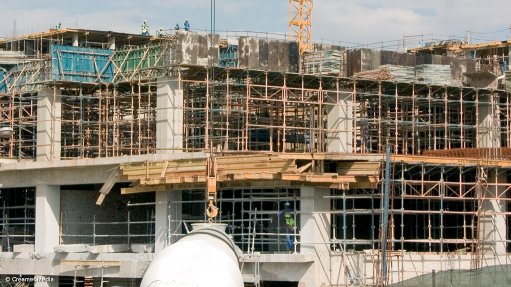
Photo by: Duane Daws
The Sedibeng Regional Sanitation Scheme (Sanitation Plant) is undergoing major upgrades in order to unlock residential and business developments in the Vaal area as well as parts of Johannesburg south.
The Sedibeng sanitation plant is currently operating above maximum capacity bringing multiple property developments to a stand-still. The plant has a capacity of 100 mega litres and currently operating at 151 mega litres. The current upgrade will generate 50 mega litres by 2017 and additional 50 mega litres by 2018 to take it to 200 mega litres. This is expected unlock major property developments and further prevent overflow of sewer into the Vaal and local streams. The project is being implemented by Rand Water and is expected to be completed by 2017.
About 12 government residential housing developments with a potential to yield over 50 000 units for needy households are currently affected by the current state of the sewer plant. Residential housing developments affected include the Vaal River City Development, Savana City and Sebokeng extension 28 - which forms part of Boiketlong Mega Project.
Private sector property developments affected include industrial, agriculture, and students accommodation. Some business projects in the area were reported to have been completed but cannot be connected to the sewer network.
The upgrading of the Sedibeng Sanitation Plan forms part of the roll-out of Mega Projects by the Gauteng Provincial Government. Mega Projects are a new multibillion housing development strategy which involves building of houses jointly with bulk infrastructure projects such as water, sanitation and mass electrification working with municipalities and State-Owned Enterprises.
Speaking at a stakeholder consultative meeting convened in Vereeniging on Wednesday, MEC Mamabolo expressed concern that the Department had resorted to rolling out housing projects in the area only in small numbers due to the sanitation challenge.
“We need to explore alternative solutions immediately” commented MEC Mamabolo.
“We also need to work jointly with all partners including local businesses to find short term solutions while working towards the 2017 completion deadline.”
“This challenge confirms that our new housing delivery approach – of including primary and secondary infrastructure as part of housing delivery value chain - can assist us to plan properly and deliver major projects on time.
“We are now convinced that working with municipalities and other state-owned agencies responsible for bulk infrastructure projects such as sanitation, water, roads and mass electrification we can be able to achieve more within a limited period of time.”
Issued by the Department of Human Settlements and Co-operative Governance and Traditional Affairs